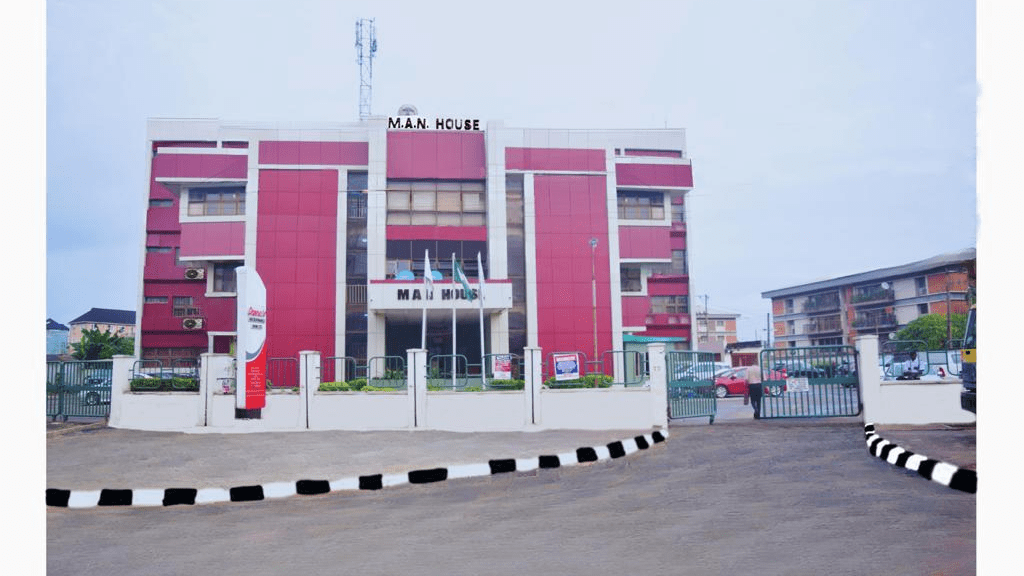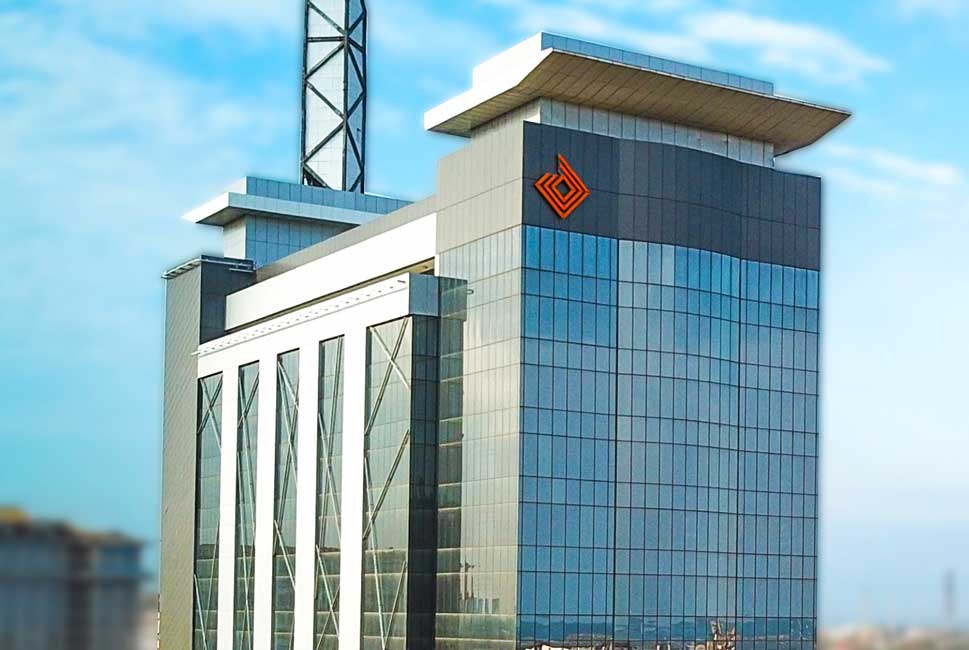
•Invests N12.4bn in community development in 2024
•OPEC oil output increased by 30,000 bpd in October, survey shows
•Ojulari: NNPC looking to raise stake in Dangote refinery to 20%
•Crude oil price dips on fears of oversupply
Emmanuel Addeh in Abuja and Peter Uzoho in Lagos
As part of moves aimed at reducing greenhouse gas emissions and improving energy security, Dangote Cement Plc has expressed its commitment to ensuring that all its trucks are 100 per cent Compressed Natural Gas (CNG)-powered by 2026.
Stressing that it’s targeting 29 per cent emissions reduction by next year, the company said it has so far co-processed over 1.5 million tonnes of alternative fuels in the last four years thus significantly lowering its carbon footprint.
The Group Managing Director of Dangote Cement, Mr. Arvind Pathak disclosed this while speaking to a global audience at the Africa CemTrade Summit which just ended in Accra, Ghana, according to a statement by the Dangote Group.
The company said the move underscores its commitment to cutting carbon emissions, enhancing energy security, and setting a benchmark for sustainable industrialisation across Africa.
Pathak said since 2021 when the company embarked on energy diversification, it has successfully deployed 15 alternative fuel systems across its plants, achieving up to 40 per cent thermal substitution in operations across its plants in sub-Saharan Africa especially in Senegal, Zambia, and South Africa.
Pathak who spoke on the theme: “Sustainable Innovation in the Sub-Saharan Africa Cement Distribution Value Chain,” said with the shift to alternative fuel, the cement company has been converting industrial, agricultural, and municipal wastes into energy, noting the initiative forms part of the company’s broader decarbonisation target aimed at cutting carbon emissions by twenty per cent by 2030.
He emphasised that Dangote Cement which has expanded its footprint across 11 countries, with a production capacity of 55 million tonnes annually, was leading a transformative shift towards sustainability in Africa’s cement distribution sector, combining environmental stewardship with profitability pointing out that sustainability sits at the core of the company’s business model, influencing every aspect from production to logistics.
Pathak explained that central to its green transition programme was the investment in CNG logistics which has seen the company acquire over 3,000 CNG trucks and 1,000 dual-fuel vehicles deployed, significantly reducing emissions and transport costs.
According to him, the company aims for a fully CNG-powered fleet in Nigeria by 2026, targeting a 29 per cent reduction in carbon emissions per energy unit consumed.
He added that Dangote Cement’s sustainability strategy was further supported by its digital transformation drive, which has introduced systems such as the Distributor Management System (DMS), Transport Management System (TMS), and Electronic Proof of Delivery (e-POD), enhancing transparency, route optimisation, and supply chain efficiency.
According to him, the company has mapped more than 65,000 retail outlets in Nigeria and continues to expand across key regional trade corridors.
Through its Customer Truck Empowerment Scheme (CTES), Dangote Cement has distributed over 4,000 trucks to transport partners, creating jobs and improving reliability in cement delivery.
In 2024 alone, the company said it invested over N12.4 billion in community development projects across its host countries, a fourfold increase from the previous year, covering education, healthcare, infrastructure, and youth empowerment.
As Dangote Cement continues to invest in low-carbon operations and innovative technologies, it has set a benchmark for sustainable industrialization across Africa.
“Dangote Cement Plc has taken the lead in driving sustainable transformation across Sub-Saharan Africa’s cement value chain. We are reaffirming our commitment to innovation and responsible growth. Sustainability has never been an afterthought for us; it is central to how we grow, innovate, and operate.
“For Africa’s industrial future to remain viable, sustainability must make economic sense. Our strategy ensures profitability while protecting the planet”, he stated.
The Dangote Cement CEO said the company has over the past two decades, expanded from a local producer into a continental leader, operating in eleven countries with an installed capacity of 55 million tonnes per annum.
Beyond scale, Pathak said, the company’s distinction lies in its deliberate shift towards lower-carbon operations, contributing to Africa’s sustainable industrialisation.
“We recognised early on that sustainability would shape the future of manufacturing. Our investments in process optimisation, cleaner fuels, and advanced energy systems are helping us reduce waste, improve efficiency, and build stronger competitiveness. We are proving that economic performance and climate responsibility can move together”, he said.
In her remark at the event, Dangote Cement’s Deputy Head of Sustainability, Oyekemi Oyelola, said the company’s model demonstrates that industrial progress and environmental responsibility can coexist.
“We see a future where Africa’s cement industry becomes a benchmark for sustainable industrialization globally. Our mission is to ensure that Dangote Cement leads that transformation, driving innovation, creating value, and helping Africa build not only stronger structures but a stronger, greener future”, she noted.
Meanwhile, oil output by the Organisation of Petroleum Exporting Countries (OPEC) rose further in October after an agreement to raise production, a Reuters survey has found, though the scale of the increase slowed sharply from September and the summer months.
OPEC countries pumped 28.43 million barrels per day (bpd) last month, up 30,000 bpd from September’s total, the survey showed, with Saudi Arabia and Iraq making the largest increases.
OPEC+, comprising OPEC and allies including Russia, slowed the pace of its output increases for October on growing concern over a possible supply glut. Simultaneously, some members are tasked with extra cuts to compensate for earlier overproduction, limiting the impact of increases.
Under an agreement by eight OPEC+ members covering October output, the five of them that are OPEC members – Algeria, Iraq, Kuwait, Saudi Arabia and the UAE – were to raise output by 86,000 bpd before the effect of compensation cuts totalling 140,000 bpd for Iraq and the UAE.
The survey showed that the actual increase by the five was 114,000 bpd, but declines in Nigeria, Libya and Venezuela offset those gains. Estimates of output in Iraq and the UAE vary widely, with many outside sources putting the countries’ output higher than the countries themselves, a Reuters report said.
While the survey and data provided by OPEC’s secondary sources show they are pumping close to the quotas, other estimates, such as those of the International Energy Agency (IEA), say they are pumping significantly higher volumes.
The survey aims to track supply to the market and is based on flow data from financial group LSEG, information from other companies that track flows, such as Kpler, and information provided by sources at oil companies, OPEC and consultants.
Also, Nigeria’s state-owned oil firm, the Nigerian National Petroleum Company Limited (NNPC) has been improving transparency about its performance in preparation for a long-awaited initial public offering, its Chief Executive, Bayo Ojulari, has said. Ojulari stated that the national oil company intended to raise its stake in Dangote refinery to 20 per cent from around 7 per cent.
Nigeria’s oil law required NNPC to list within six months after the law was passed in 2021. It has yet to do so, although its finance chief said in March that it was in the final stages of preparations, Reuters said.
“The IPO journey is by law. The PIA (Petroleum Industry Act) prescribes for NNPC to journey towards achieving IPO. It’s not an option for us”, Ojulari said. He added that the preparations required the company to become more transparent.
“We have begun to publish our monthly performance since May this year and that has continued”, Ojulari added, without giving a timeline for the IPO.
Speaking at the ADIPEC energy conference in Abu Dhabi, Ojulari also said the company was working towards increasing its stake in Nigeria’s Dangote refinery to 20 per cent.
The Dangote Petroleum Refinery, Africa’s largest oil refinery, launched operations last year but has struggled amid competition from cheap imports.
Last week, NNPC’s CEO said it was seeking technical equity partners to help revive three of its refineries that have remained idle despite significant investments.
In the same vein, oil prices fell 1 per cent on Wednesday, weighed down by concerns of a possible global oil glut, but data showing signs of strong US demand for fuel limited the losses.
Brent crude futures were down 79 cents, or 1.23 per cent, at $63.65 a barrel by 12:56 p.m. ET (1756 GMT). US West Texas Intermediate crude was down 81 cents, or 1.34 per cent lower at $59.75.
Oil prices fell following US government data that showed an increase in crude inventories last week.
OPEC and allied producers, a group known as OPEC+, agreed on Sunday to increase output by 137,000 barrels a day in December. It decided to pause further increases in the first quarter of 2026.



